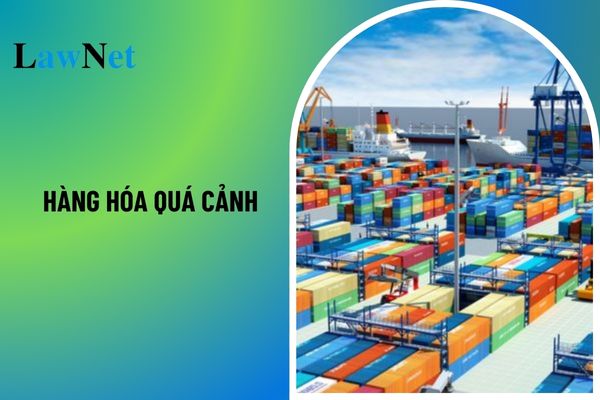Are goods in transit required to pay export and import duties in Vietnam?
Are goods in transit required to pay export and import duties in Vietnam?
Based on Clause 2, Article 2 of the Law on export and import duties 2016, specific regulations are provided regarding taxable objects as follows:
Taxable Objects
..
- export and import duties do not apply to the following cases:
a) Goods in transit, transshipment, transfer;
b) Humanitarian aid goods, non-refundable aid goods;
c) Goods exported from non-tariff zones to foreign countries; goods imported from abroad into non-tariff zones and used only within the non-tariff zones; goods transferred from one non-tariff zone to another;
d) The portion of petroleum used to pay resource tax to the State upon export.
- The Government of Vietnam provides details on this Article.
Therefore, under the above regulation, export and import duties do not apply to goods in transit.

Are goods in transit required to pay export and import duties in Vietnam? (image from Internet)
When is the time for calculating export and import duties in Vietnam?
According to Clause 2, Article 8 of the Law on Export Tax, Import Tax 2016, the specific regulation is as follows:
- The time for calculating export and import duties is the time of registration of the customs declaration.
- For exported and imported goods that are not subject to tax, exempt from export and import duties, or subject to tax rates, absolute tax within the tariff quota that are changed in terms of non-taxation, exemption, tax rate application, absolute tax within tariff quota as per legal regulations, the time for tax calculation is the time of new customs declaration registration.
- The time for registration of the customs declaration is implemented according to the law on customs.
What are principles for goods in transit in Vietnam?
The principles for managing goods in transit are regulated in Article 45 of the Law on Foreign Trade Management 2017 as follows:
- goods in transit when exported must be all goods imported.
- The foreign organization, individual performing goods in transit services or self-conducting goods in transit through the territory of Vietnam, or hiring foreign traders to conduct goods in transit through the territory of Vietnam must be performed:
+ According to the law on commerce and international agreements that the Socialist Republic of Vietnam is a member;
+ Must comply with Vietnamese laws on exit, entry, transportation, traffic.
- goods in transit by air are carried out according to international aviation agreements that the Socialist Republic of Vietnam is a member.
- goods in transit through Vietnam's territory must be subject to customs supervision throughout the transit process, and enter and exit according to the designated border gates.
- Goods in transit for domestic consumption must be implemented according to export and import goods management regulations of the Law on Foreign Trade Management 2017 and other related legal regulations.
What is the administrative penalty for tax evasion in Vietnam?
Based on point b, Clause 1, Article 17 of Decree 125/2020/ND-CP, specific regulations on administrative penalties for tax evasion are as follows:
[1] A fine equal to 1 time the evaded tax amount for taxpayers with at least one mitigating circumstance when committing one of the following acts:
- Failure to submit taxpayer registration dossier; failure to submit or submitting the tax declaration dossier more than 90 days after the deadline for submission of the tax declaration dossier or the expiration of the extended deadline for submission, except for cases specified in points b, c, Clause 4, and Clause 5, Article 13 Decree 125/2020/ND-CP.
- Failing to record in the accounting books the revenues related to the determination of payable tax amounts, failing to declare, erroneously declaring leading to a shortage of payable tax amounts or increasing the tax amount to be refunded, exempted, reduced, except for acts specified in Article 16 of this Decree;
- Failing to issue invoices when selling goods, services, except when the taxpayer has declared tax for the value of sold goods, services provided in the relevant tax period; issuing invoices for selling goods, services with incorrect quantity, value to declare tax lower than the actual and being detected after the tax declaration submission period expires;
- Using invalid invoices; unlawfully using invoices to declare tax resulting in a decrease in payable tax or an increase in the tax amount to be refunded, exempted, or reduced;
- Using invalid vouchers; unlawfully using vouchers; using vouchers, documents that do not reflect the true nature of transactions or actual transaction values to incorrectly determine the payable tax amount, exempted, reduced, refunded; fabricating documentation, dossiers for destroying materials, goods not in reality, resulting in reducing payable tax or increasing tax refunds, exemptions, reductions;
- Using goods that are not subject to tax, tax exemption, tax inspection improperly without declaring the change of use purpose, declaring tax with the tax authority;
- Taxpayer conducts business during the period of request for business suspension, temporary business suspension without notifying the tax authority, except for cases specified at point b, Clause 4, Article 10 Decree 125/2020/ND-CP.
[2] A fine equal to 1.5 times the evaded tax amount for taxpayers committing one of the acts specified in Clause 1, Article 7 Decree 125/2020/ND-CP without aggravating or mitigating circumstances.
A fine equal to 2 times the evaded tax amount for taxpayers committing one of the acts specified in Clause 1, Article 7 Decree 125/2020/ND-CP with one aggravating circumstance.
[3] A fine equal to 2.5 times the evaded tax amount for taxpayers committing one of the acts specified in Clause 1, Article 7 Decree 125/2020/ND-CP with two aggravating circumstances.
[4] A fine equal to 3 times the evaded tax amount for taxpayers committing one of the acts specified in Clause 1, Article 7 Decree 125/2020/ND-CP with three or more aggravating circumstances.

